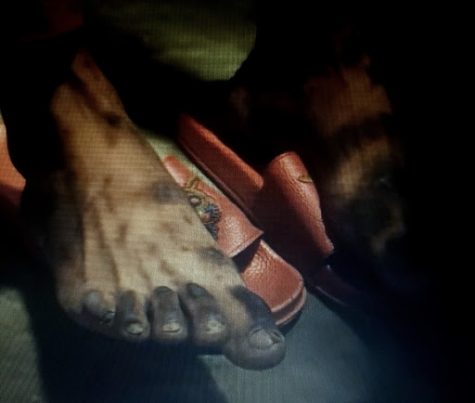
“Skin” is an hour long documentary that collects the stories of Black women in Nigeria who have been treated differently for having dark skin.
Many women speak out about how their skin defines them. We see colorism in America, but there is not a collective group of Black people that see dark skin in a negative light. This documentary gives us an inside look on what it is like for women from an African perspective.
Nigerian Hollywood actress Beverly Naya goes on a journey to learn about the perception of beauty in Africa. She meets with individuals that cracked under the pressure of the standards of beauty in their community as well as the entertainment industry.
In the beginning of the film, Naya talks about her experience as a child and now as an actress. She allows us to interact with colorism through her experience.
Naya’s wall is stripped down, showing that she is vulnerable. She expresses feelings that she’s been hiding for a very long time. When Naya travels to meet with the women, they are very open to talking about their experiences as a dark skinned woman or as a light skinned woman.
Skin bleaching and skin whitening are one of the main concepts to be discussed. Almost every woman that Naya talks to says they do skin bleaching to become more attractive to men. Several African countries have banned the use of skin bleaching products because they are dangerous. These products include creams, soaps, chemical peels, and pills. Bleaching and lightening products in Africa contain mercury and steroids. These harmful chemicals can cause kidney failure, irritation to the skin, and ulcers.

I thought this was interesting because we don’t hear much about skin bleaching in America – it’s not popular, but many people in Nigeria are doing it because dark skin is considered ugly or a sign of poverty, and light skin is considered beautiful and a sign of wealth. Due to colonialism, Europeans had superiority over Black people, being white or having lighter skin would give you opportunities. I noticed in this film that the people in Nigeria don’t know about colorism and they do not see how offensive it is. Children are raised to think this way as well.
As a dark skinned woman, I had to learn how to love my skin. When I was younger, I wanted to become lighter because light skinned women are portrayed as beautiful women. Now that I am older, I am in love with my melanin. I like how this film is raw and very open. I can relate to Naya when she talks about how she was bullied when she was younger: “I got bullied for a lot of reasons and it definitely messed with my confidence. It made me feel like I wasn’t good enough and for that reason, it definitely messed with my self-esteem. And I’ve been inspired by that.”
Women in Nigeria go the extra mile to become beautiful in their society, not even caring about how bleaching their skin can harm their bodies.
I started to grow sympathy for most of the women that were filmed, one woman cried because she regrets what bleaching has done to her body. If she had the opportunity to go back to her original color, she would.
What I didn’t like about the film is how socialites, entertainers, and businesspeople don’t consider dark skin beautiful. These people spend large amounts of money to look a certain way to build more fame and more money. They practically talk down to dark skinned women, and even dark skinned men.
I believe this film is very eye opening and people that watch this can see how a Black woman’s skin can define her beauty in another country
“Skin” is now a trending international documentary on Netflix and I recommend adding it to your watch list.
___
For more information or news tips, or if you see an error in this story or have any compliments or concerns, contact editor@unfspinnaker.com.











